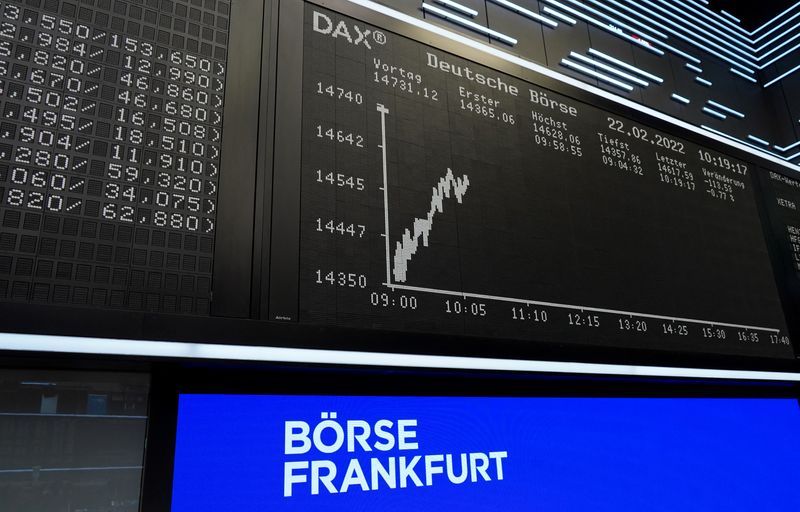This post was originally published on this site

Investing.com – European stock markets traded in a mixed fashion Thursday, as investors digested disappointing German trade data as well as the hawkish tone from the minutes of the last Federal Reserve meeting ahead of the release of key Eurozone inflation data.
At 03:55 ET (08:55 GMT), the DAX index in Germany traded 0.3% lower, the CAC 40 in France traded down 0.5%, while the FTSE 100 in the U.K. climbed 0.1%.
The main European stock indices have started the new year positively, as the release of better-than-expected inflation data from Germany and France raised hopes that the worst of the cost-of-living crisis in Europe is over.
The November Eurozone PPI release is due later in the session, and should provide more clues as to where inflation is headed in Europe.
Earlier Thursday, German exports unexpectedly fell in November, dropping 0.3% on the month, as high inflation and market uncertainty continued to weigh on Europe’s largest economy.
Imports also posted a bigger-than-expected drop of 3.3% in November, compared with consensus for a 0.5% decline.
Adding to the negative tone were the minutes of the Fed’s December meeting, which showed that while policymakers supported a slower pace of interest rate hikes, they also want rates to be kept higher for longer.
In the corporate sector, Next (LON:NXT) stock soared over 8% after the U.K. retailer earned more than it expected last year after a surprisingly strong end to the year, but said it remained “cautious” about the next 12 months, given the ongoing recession in the U.K.
Oil prices rose Thursday, rebounding after two sessions of steep losses as rising COVID-19 cases in China and an IMF warning on a potential recession raised fears of weak demand in 2023.
Data from the industry group American Petroleum Institute indicated that U.S. crude inventories rose by 3.3 million barrels in the last week of December. However, releases from the Strategic Petroleum Reserve have contributed to this build, suggesting underlying fuel consumption remained robust through the holiday season.
Official data from the Energy Information Administration will be studied later in the session for confirmation.
By 03:55 ET, U.S. crude futures traded 1.2% higher at $73.69 a barrel, while the Brent contract rose 1.1% to $78.65.
Both contracts suffered cumulative declines of more than 9% on Tuesday and Wednesday, the biggest two-day losses at the start of a year since 1991, according to Refinitiv Eikon data.
Additionally, gold futures fell 0.4% to $1,851.95/oz, while EUR/USD traded 0.2% higher at 1.0621.

